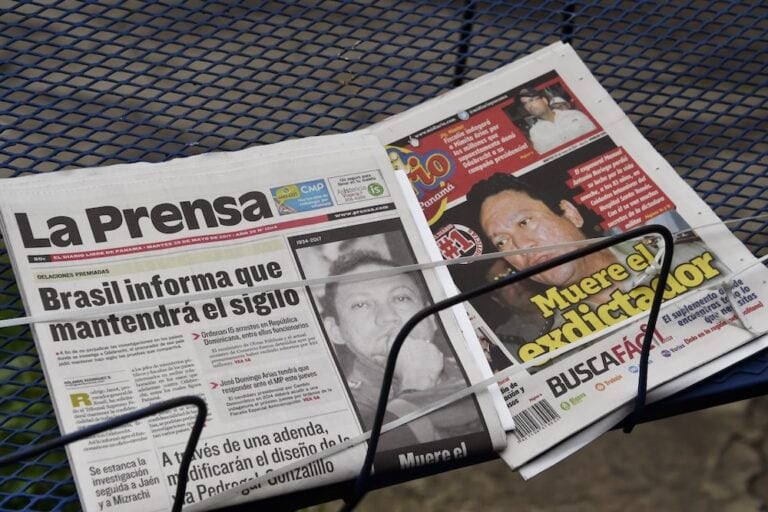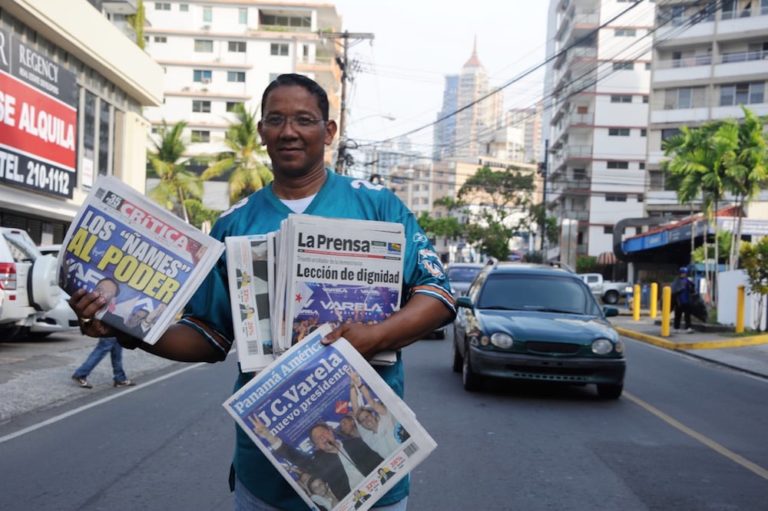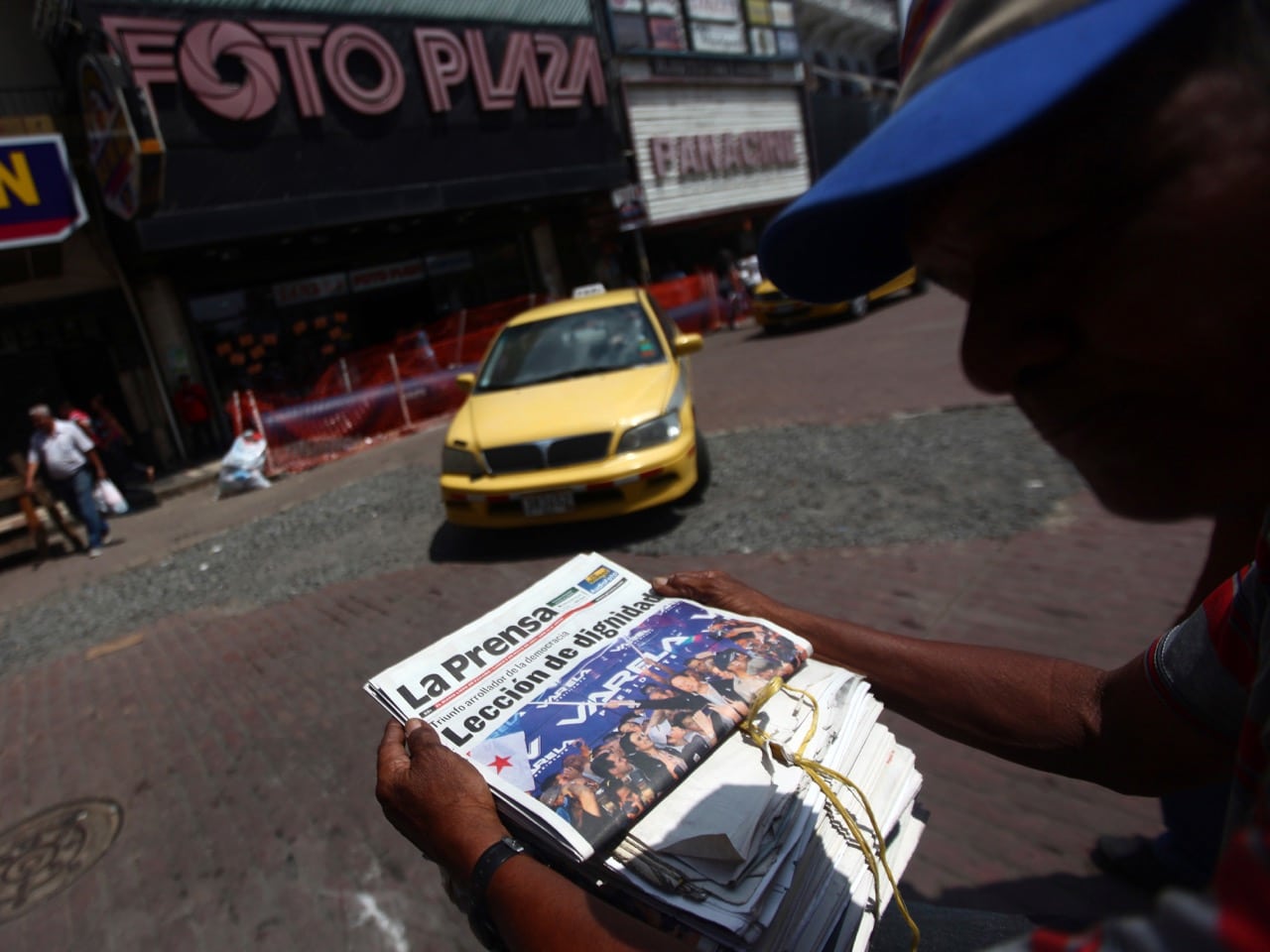A number of journalists have been the subject of insults and a campaign to slur their reputations in videos posted anonymously on YouTube and in television ads.
(IAPA/IFEX) – Miami, May 10, 2011 – The Inter American Press Association (IAPA) today asked Panama President Ricardo Martinelli’s government to investigate campaigns against journalists designed to “undermine the credibility of the press” and that are producing “a major cleft in freedom of expression.”
In recent weeks several journalists, among them the head of the investigative reporting team of the newspaper La Prensa, Lina Vega Abad, have been the subject of insults and a campaign to slur their reputations in videos posted anonymously on YouTube and in television ads. Vega Abad’s professional and personal life were questioned – in retaliation, it was reported, for her reports on government wrongdoing.
A spot broadcast on television by the governing Democratic Change Party over the weekend also cast doubt on the integrity of Santiago Cumbrera, a reporter with the La Prensa investigative unit, over his investigations into the dissemination of Wikileaks cables that exposed government officials. IAPA President Gonzalo Marroquín, president of the Guatemala City, Guatemala, newspaper Siglo 21, declared, “It is clear that the journalists are being discredited to harm their reputations and consequently undermine their credibility before the public; so it is the government’s responsibility to investigate the matter and punish those responsible in order to ensure freedom of the press.”
Early last month Alvaro Alvarado, a reporter and host of TV Canal 13’s morning news program “Telemetro”, complained of campaigns to discredit him. La Prensa recalled that during 2010 other anonymous videos had been used to discredit the newspaper’s then legal affairs editor Mónica Palm. The chairman of the IAPA’s Committee on Freedom of the Press and Information, Robert Rivard, editor of the San Antonio Express-News, Texas, added, “While the anonymous defamatory messages should not be taken as fact, if they are not investigated they will help create a climate of intolerance and intimidation that weakens the public’s ability to receive information.”
In its recent biannual report on the state of press freedom in the Western Hemisphere, the IAPA warned of the state of confrontation that exists between the government and the press in Panama, declaring that the federal administration there tends “to blame the news media for some situations and events that are of a public nature.”


